|
|
Cost Breakdown by Type of Hardwood
- Solid Hardwood Flooring: is often considered the gold standard in flooring, offering durability and a timeless look. However, it's also on the higher end of the cost spectrum. For more details on solid hardwood options, you can read our solid hardwood flooring page.
- Engineered Hardwood Flooring: Offers a more budget-friendly alternative without sacrificing too much in terms of aesthetics and durability. The cost can vary based on the quality of the top veneer. For an in-depth look at engineered hardwood, check out our engineered hardwood flooring page.
Cost Comparison: DIY vs. Professional Installation
On the other hand, Hiring professionals may seem more expensive initially, but their expertise can save you from costly mistakes in the long run. Plus, the job will likely be completed much faster.
|
FAQ
The average cost can range from $6 to $12 per square foot, depending on the type of hardwood and other factors.
2. Is it cheaper to install hardwood flooring myself?
While DIY can save on labor costs, it's essential to consider the complexity of the job and the tools required. For more on DIY vs. professional installation, read here.
3. What are some hidden costs I should be aware of?
Additional costs can include the removal of old flooring and moving furniture. Always ask for a detailed quote to avoid surprises.
4. Does the type of hardwood significantly affect the cost?
Yes, exotic woods and high-end options will be more expensive than standard choices. For a breakdown by type, visit this page.
5. How can I get the most value for my money when installing hardwood floors?
To maximize your investment, consider the long-term benefits of the type of hardwood you choose, as well as the potential resale value it could add to your home. Always get multiple quotes and ask for detailed breakdowns to make an informed decision.
Engineered Hardwood Flooring in Toronto: Costs, Benefits, and Common Questions Answered
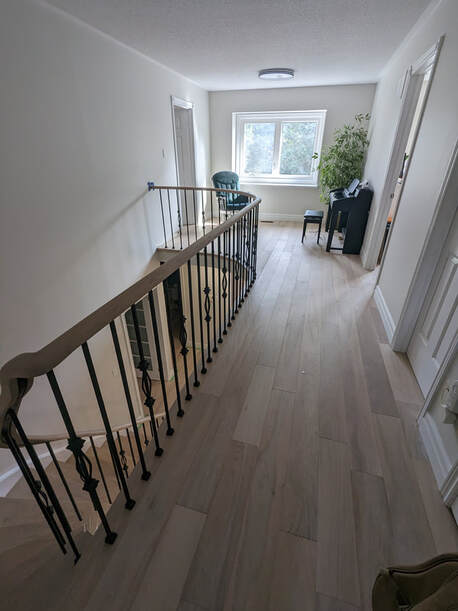 Elegant engineered hardwood flooring by Parqueteam Hardwood Flooring in a Toronto home.
Elegant engineered hardwood flooring by Parqueteam Hardwood Flooring in a Toronto home. Understanding The Costs of Installing Engineered Hardwood Floors
- Quality of the Material: Not all engineered hardwood is created equal. The thickness of the top veneer, the number of layers, and the quality of the core materials can all impact the price.
- Installation Complexity: Unlike with solid hardwood flooring, engineered hardwood floors have different ways of installation, and has cheaper and more expensive options for installation compared to solid hardwood floors, depends on type of flooring, subfloors, and manufacturing requirments. Some of the more common once are: Floating install (cheapest), Nail and glue assist (middle price) and full direct or double glue down (most expensive install)
- Brand & Origin: Premium brands or imported materials might come at a higher price point, but they often offer better warranties and longevity.
- Maintenance & Longevity: While the initial investment might be higher for high-quality engineered hardwood, the long-term maintenance costs can be lower due to its durability and resistance to wear and tear.
Benefits of Engineered Hardwood Floors
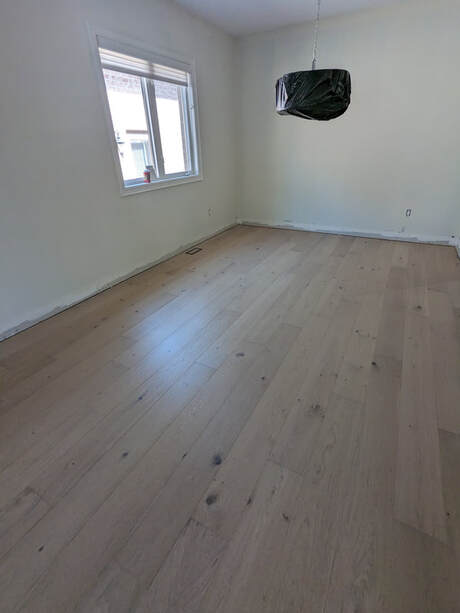 Detailed texture of engineered hardwood by Parqueteam Hardwood Flooring
Detailed texture of engineered hardwood by Parqueteam Hardwood Flooring - Durability: Engineered hardwood is designed to resist warping and buckling, making it especially suitable for areas with varying humidity levels, like Toronto.
- Versatility: Its unique construction allows it to be installed over a variety of subfloors, including concrete and radiant heating systems.
- Aesthetic Appeal: With a wide range of finishes, styles, and wood species available, engineered hardwood can complement any interior design, from contemporary to classic.
- Eco-Friendly: Many engineered hardwood options use sustainably sourced wood and less of the desired species compared to solid hardwood, making it a more environmentally friendly choice.
- Value Addition: Homes with engineered hardwood often fetch a higher resale value, thanks to the flooring's longevity and timeless appeal.
Engineered Hardwood Floors vs. Solid Hardwood Floors
- Construction: While solid hardwood is made from a single piece of wood, engineered hardwood consists of a top veneer layer backed by multiple layers of plywood or other wood-based materials.
- Moisture Resistance: Engineered hardwood's multi-layered construction gives it an edge in resisting moisture and temperature changes, making it less prone to warping.
- Installation Flexibility: Engineered hardwood can be installed in basements and over concrete subfloors, where solid hardwood might not be recommended.
- Refinishing: Solid hardwood can be sanded and refinished multiple times, given its thickness. Engineered hardwood can also be refinished, but the number of times depends on the thickness of the top veneer layer.
- Cost: Engineered hardwood often comes at a more affordable price point than solid hardwood, especially when considering exotic wood species.
Engineered Hardwood Flooring Installation Process
- Preparation: Before the actual installation, the subfloor is prepared to ensure it's clean, level, and dry. This step is crucial to prevent any future issues like warping or squeaking.
- Method: Engineered hardwood can be installed using various methods, including floating, gluing, or nailing. The "nail and glue assist" method, as showcased in your YouTube short, offers added stability, especially for wider planks.
- Acclimatization: It's essential to let the engineered hardwood acclimate to the room's humidity and temperature for a few days before installation. This step helps in reducing post-installation expansion or contraction.
- Finishing: Once installed, the floor might require a protective finish, depending on the product chosen. This finish enhances the floor's durability and gives it a polished look.
Maintenance and Durability
- Regular Cleaning: Use a soft broom or vacuum to remove dirt and debris. Avoid using wet mops or steam cleaners as excessive moisture can damage the wood.
- Immediate Spill Cleanup: Any liquid spills should be cleaned up immediately to prevent staining or water damage.
- Protection: Use protective pads under furniture legs to prevent scratching. Consider using area rugs in high-traffic areas to reduce wear.
- Refinishing: Over time, the top layer of the engineered hardwood might show signs of wear. Depending on the thickness of the veneer, the floor can be sanded and refinished to restore its original beauty.
- Avoid Direct Sunlight: Prolonged exposure to direct sunlight can cause discoloration. Use curtains or blinds to protect your floor from UV rays.
FAQ
- How much does it cost to install engineered hardwood?
The cost varies based on material quality, installation complexity, and square footage. - What are the disadvantages of engineered wood flooring?
While engineered hardwood offers many benefits, potential disadvantages include limited refinishing options (depending on veneer thickness) and sensitivity to prolonged moisture exposure. - Is engineered wood as good as hardwood floors?
Engineered hardwood combines the beauty of real wood with added stability from its multi-layered construction. Learn more about the comparison in our article on Engineered vs. Solid Hardwood. - Do engineered wood floors scratch easily?
While they are durable, they can be prone to scratches, much like solid hardwood. Proper care and protective measures can help maintain their appearance. - Which is better: engineered hardwood or laminate?
Both have their merits. Engineered hardwood offers a natural wood look and feel, while laminate is often more resistant to wear. Visit our Laminate Flooring Guide for more information about laminate floors. - How long will an engineered wood floor last?
With proper care, it can last decades. The lifespan also depends on factors like veneer thickness and core quality. - What is the best rated engineered wood flooring?
The best rating often depends on individual preferences, room usage, and budget. Our Portfolio showcases some top choices among Toronto homeowners. - Does engineered hardwood need underlayment?
Yes, an underlayment can provide moisture protection, sound insulation, and added comfort. More details can be found in our Installation Guide. - Is it better to glue or float an engineered wood floor?
The ideal method often depends on the product and subfloor. Both methods have their advantages, as discussed in our Comprehensive Guide. - Is engineered flooring more durable than hardwood?
Parqueteam Hardwood Flooring
Hardwood Flooring Toronto and The Greater Toronto Area.
Archives
December 2023
November 2023
October 2023
September 2023
August 2023
June 2023
May 2023
April 2023
July 2018
February 2018
January 2018
December 2017
March 2017
February 2017
January 2017
November 2016
October 2016
May 2016
March 2016
February 2016
January 2016
December 2015
November 2015
October 2015
September 2015
August 2015
July 2015
June 2015
May 2015
April 2015
March 2015
February 2015
January 2015
December 2014
June 2014
May 2014
April 2014
March 2014
Categories
All
Affordable Flooring
Art Flooring
Canada
Canadian
Clean Hardwood Floors
Cleaning Hardwood Floors
Commercial Hardwood Flooring
Condos
Construction
Construction Materials
Consturction
Contractors
Cost And Budgeting
Dark Hardwood Flooring
Design
DIY
Durable Hardwood Floors
Engineered Hardwood
Engineered Hardwood Flooring
Engineered Hardwood Flooring Toronto
Engineered Hardwood Floors
Engineered Wood Floors
European Hardwood Flooring
Floating Hardwood Flooring
Flooring
Flooring Baseboards
Flooring Baseboards Installation
Flooring Benefits
Flooring Comparison
Flooring FAQs
Flooring Guide
Flooring Innovation
Flooring Installation
Flooring Maintenance
Flooring Options
Flooring Refinishing
Flooring Solutions
Flooring Styles And Patterns
Flooring Tips
Flooring Tips And Guides
Flooring Trends
Floors
Glue Down Hardwood Floors
Hardwood
Hardwood Floor
Hardwood Flooring
Hardwood Flooring Contractor
Hardwood Flooring Contractors
Hardwood Flooring Contractors In Toronto
Hardwood Flooring Contractors Toronto
Hardwood Flooring Finishes
Hardwood Flooring Installation
Hardwood Flooring Installation Cost
Hardwood Flooring Installation In Markham
Hardwood Flooring Installation In Toronto
Hardwood Flooring Installation Toronto
Hardwood Flooring Installers In Toronto
Hardwood Flooring In Toronto
Hardwood Flooring Markham
Hardwood Flooring Refinishing
Hardwood Flooring Repairs
Hardwood Flooring Sanding And Refinishing
Hardwood Flooring Toronto
Hardwood Flooring Trends
Hardwood Floors
Hardwood Floors Toronto
Hardwood Stairs
Hickory Flooring
Home Decor
Home Decor Tips
Home Design
Home Improvement
Home Imrovement
Home Investment
Home Renovation
Home Renovations
Homes
Home Solutions
House
Installation
Interior Design
Interiors
Kitchen Remodeling
Laminate
Laminate Flooring
Laminate Flooring Installation
Laminate Flooring Installation Toronto
Laminate Flooring Installers
Laminate Flooring Toronto
Laminate Floors
Maple Flooring
Modern Home Improvement
Oak Flooring
Parqueteam
Parqueteam Hardwood Flooring
Real Estate
Real Estate Value Enhancement
Refinishing
Solid Vs Engineered Flooring
Solid Wood Flooring
Staining Hardwood Floors
Sustainable Flooring
Tips
Toronto
Toronto Climate
Toronto Flooring
Toronto Flooring Services
Toronto Hardwood Flooring
Toronto Home Improvement
Toronto Homeowners
Toronto Homeowners Guide
Toronto Home Renovation
Toronto Home Style
Toronto Living
Toronto Real Estate
Wood
Wooden Floors
Wood Flooring
Wood Flooring Installation
Wood Flooring Installation In Toronto
Wood Flooring Toronto
Wood Floors
Wood Stairs Installation Toronto
Wood Stairs Toronto


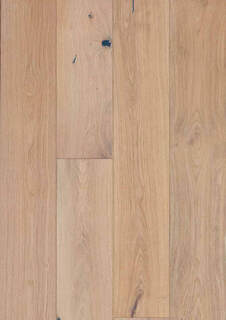
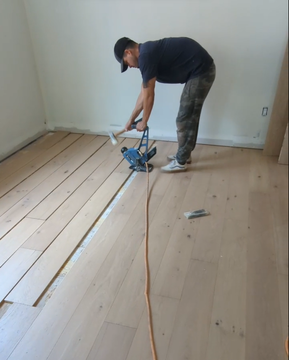
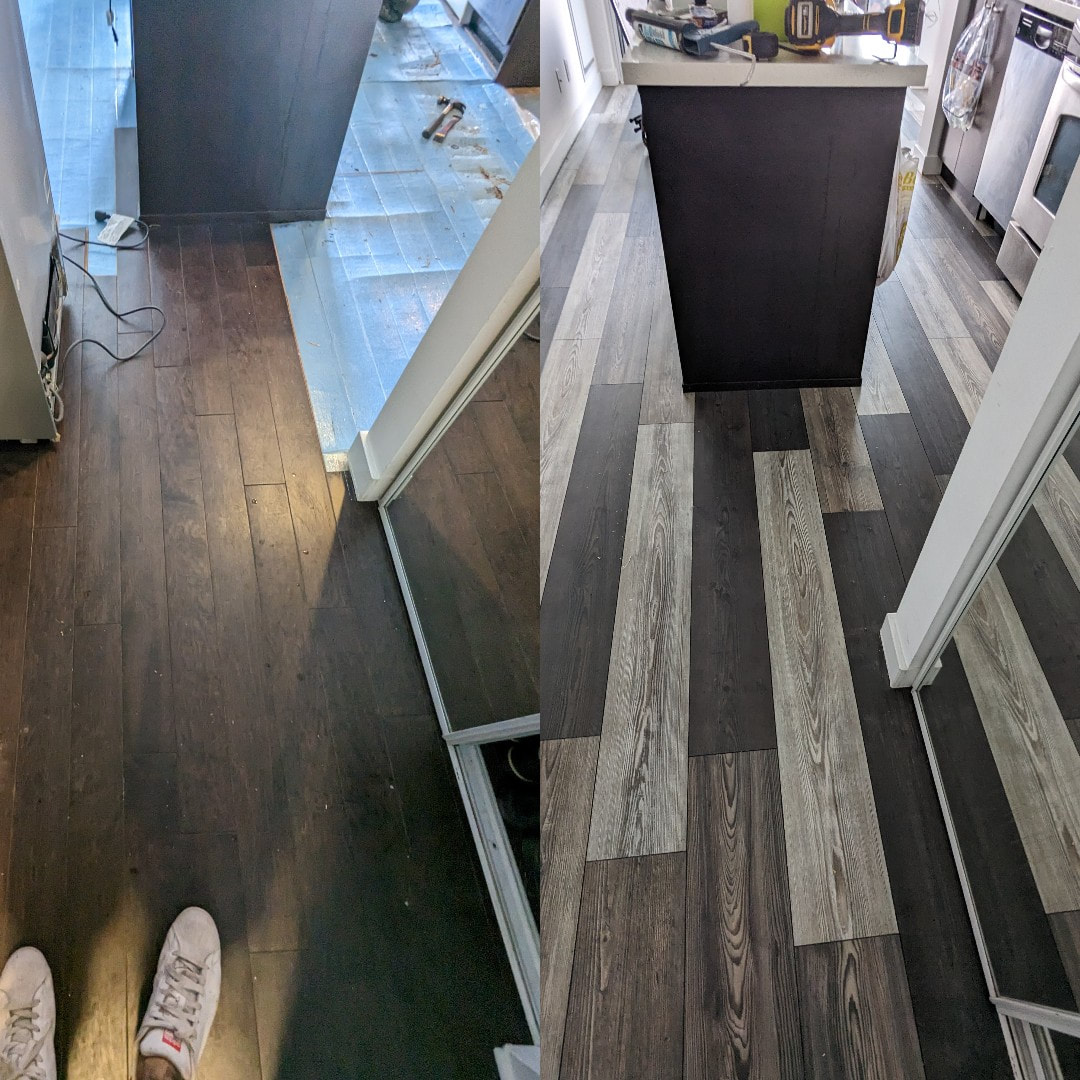
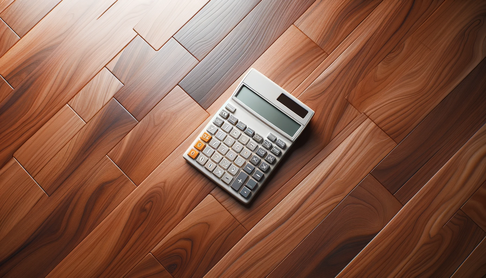
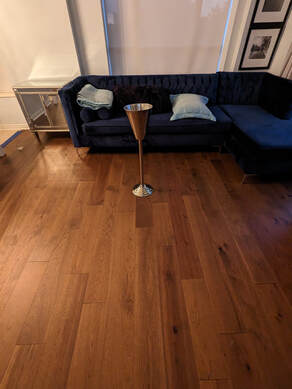
 RSS Feed
RSS Feed

